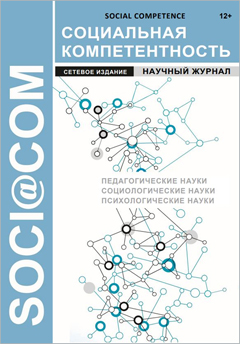Цифровые технологии и качество жизни пожилых людей в современных условиях
Ключевые слова:
пожилые люди, цифровизация, цифровые компетенции, цифровое неравенство, техноэйджизм, «серебряная экономика», технострессАннотация
Данная статья представляет собой анализ особенностей интернетизации пожилых людей в современных условиях цифровой трансформации общества и определение качественных изменений и уклада повседневной их жизни. Информационную базу исследования составили тематические научные работы российских и зарубежных авторов (Беларусь, Вьетнам), статистическая информация и материалы Федеральной службы государственной статистики, территориального органа Федеральной службы государственной статистики по Иркутской области за период с 2017 по 2021 годы; результаты различных социологических исследований, направленных на изучение особенностей интернет-практик пожилых людей и их социальной адаптации к цифровой трансформации, где ведущую роль играют цифровые компетенции старшего поколения, формирование которых зависят от их мотивации и активности, а также требует особых педагогических методов и подходов. В целом, несмотря на наличие не только конструктивных, но и деструктивных стратегий адаптивного поведения пожилых людей, невысокую их долю как активных пользователей Интернета в сравнении с молодыми людьми, цифровое неравенство, техноэйджизм и техностресс, делается вывод о существенных изменениях повседневной жизни, удовлетворения широкого спектра материальных, социальных и духовных потребностей и расширения возможностей пожилых людей, а также положительном влиянии на их здоровье, взаимоотношения, труд, досуг, социальную и политическую активность, общую удовлетворенность жизнью


